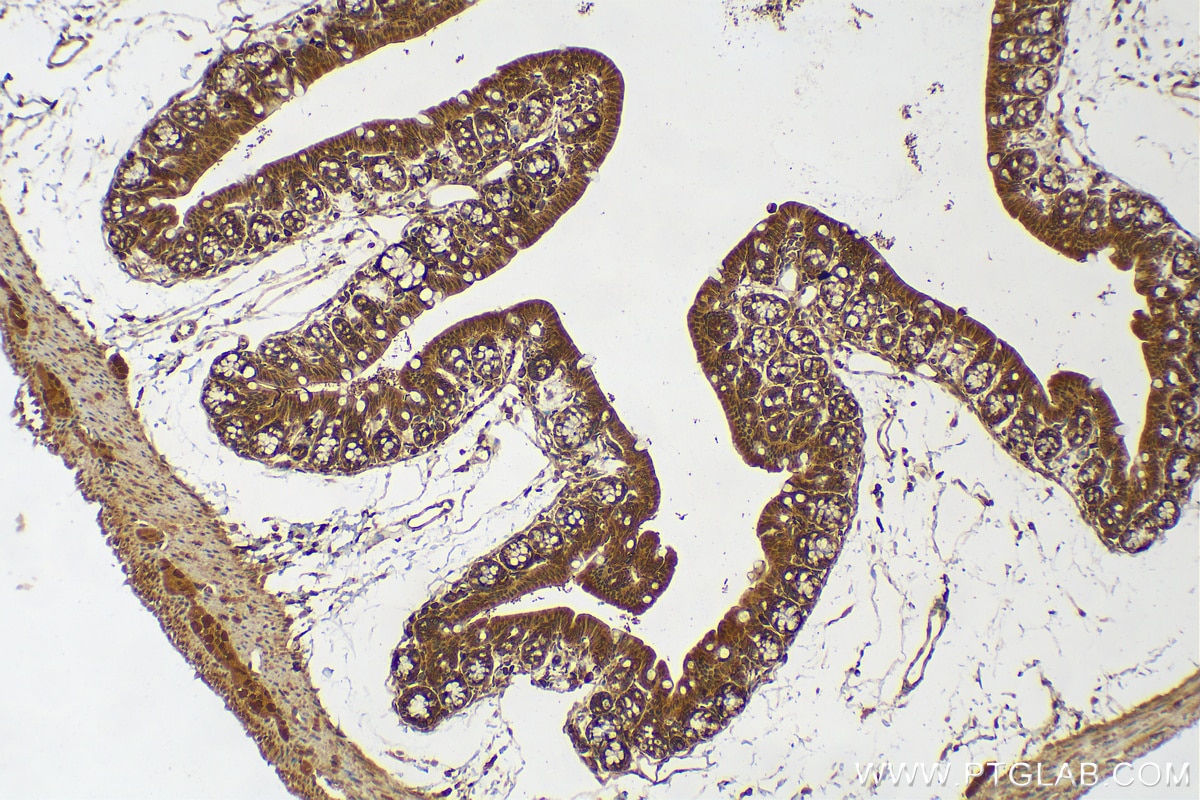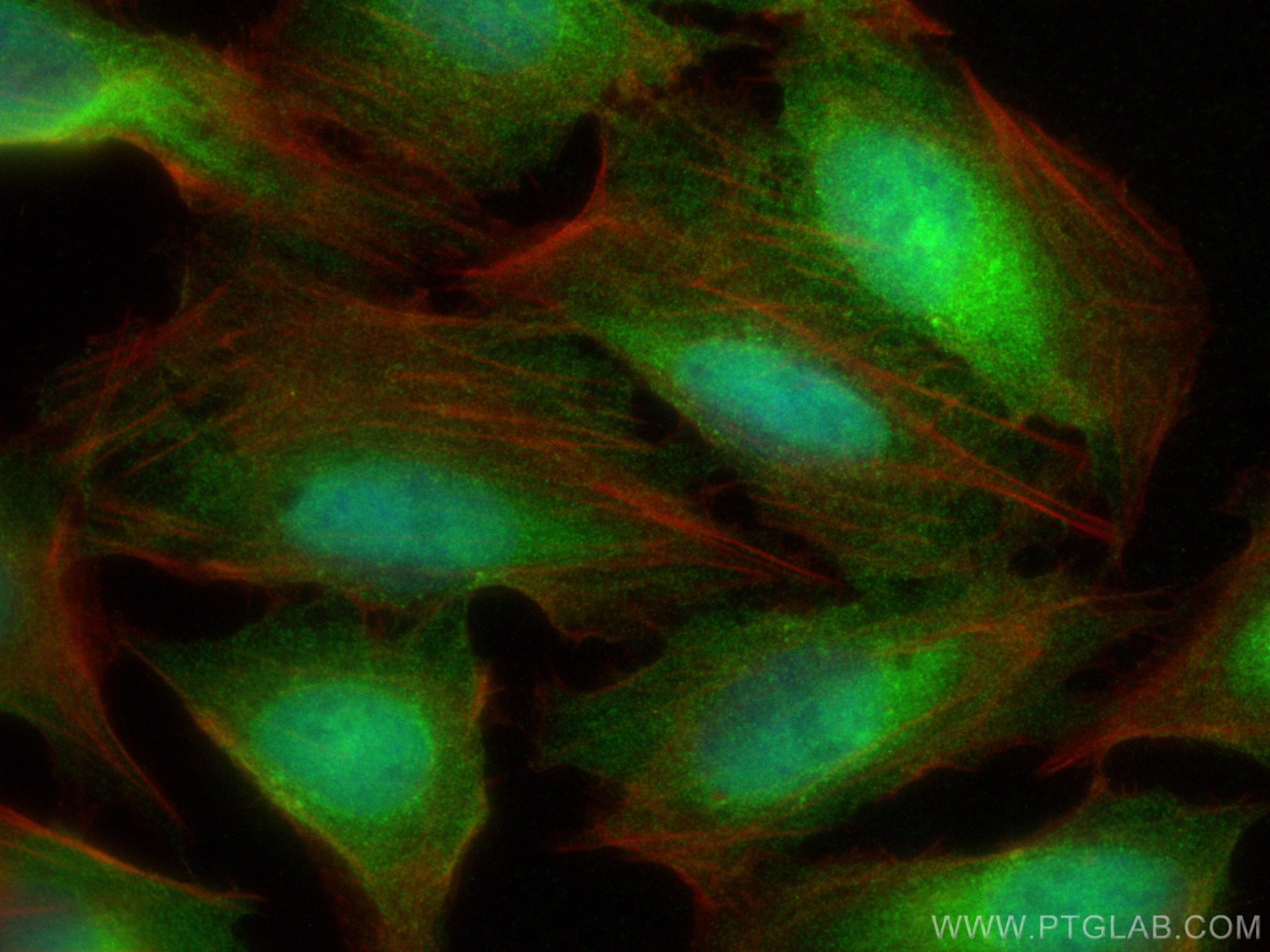Tested Applications
| Positive IHC detected in | mouse colon tissue Note: suggested antigen retrieval with TE buffer pH 9.0; (*) Alternatively, antigen retrieval may be performed with citrate buffer pH 6.0 |
| Positive IF/ICC detected in | U2OS cells |
Recommended dilution
| Application | Dilution |
|---|---|
| Immunohistochemistry (IHC) | IHC : 1:50-1:500 |
| Immunofluorescence (IF)/ICC | IF/ICC : 1:200-1:800 |
| It is recommended that this reagent should be titrated in each testing system to obtain optimal results. | |
| Sample-dependent, Check data in validation data gallery. | |
Product Information
14658-1-AP targets WIBG in IHC, IF/ICC, ELISA applications and shows reactivity with human, mouse, rat samples.
| Tested Reactivity | human, mouse, rat |
| Host / Isotype | Rabbit / IgG |
| Class | Polyclonal |
| Type | Antibody |
| Immunogen |
CatNo: Ag6276 Product name: Recombinant human WIBG protein Source: e coli.-derived, PET28a Tag: 6*His Domain: 1-204 aa of BC006135 Sequence: MEAAGSPAATETGKYIASTQRPDGTWRKQRRVKEGYVPQEEVPVYENKYVKFFKSKPELPPGLSPEATAPVTPSRPEGGEPGLSKTAKRNLKRKEKRRQQQEKGEAEALSRTLDKVSLEETAQLPSAPQGSRAAPTAASDQPDSAATTEKAKKIKNLKKKLRQVEELQQRIQAGEVSQPSKEQLEKLARRRALEEELEDLELGL Predict reactive species |
| Full Name | within bgcn homolog (Drosophila) |
| Calculated Molecular Weight | 23 kDa |
| GenBank Accession Number | BC006135 |
| Gene Symbol | WIBG |
| Gene ID (NCBI) | 84305 |
| RRID | AB_3085439 |
| Conjugate | Unconjugated |
| Form | Liquid |
| Purification Method | Antigen affinity purification |
| UNIPROT ID | Q9BRP8 |
| Storage Buffer | PBS with 0.02% sodium azide and 50% glycerol, pH 7.3. |
| Storage Conditions | Store at -20°C. Stable for one year after shipment. Aliquoting is unnecessary for -20oC storage. 20ul sizes contain 0.1% BSA. |
Background Information
Protein WIBG homolog, also known as PYM1 (Partner of Y14 and mago), is a cytoplasmic RNA-binding protein, that can interact with the ribosome and EJC, may act as an EJC destabilizing factor, preventing EJC accumulation at positions away from exon-exon junctions (non-canonical position).
Protocols
| Product Specific Protocols | |
|---|---|
| IF protocol for WIBG antibody 14658-1-AP | Download protocol |
| IHC protocol for WIBG antibody 14658-1-AP | Download protocol |
| Standard Protocols | |
|---|---|
| Click here to view our Standard Protocols |






